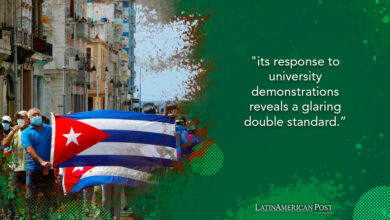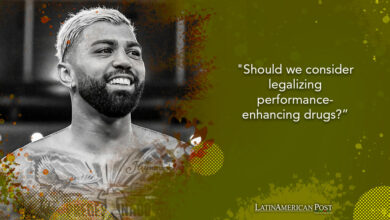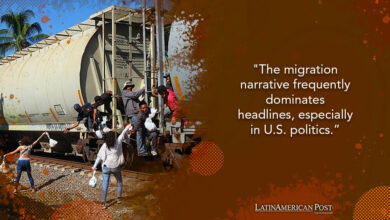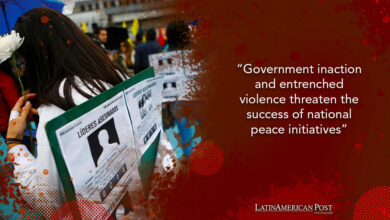Peru’s in Luxury Scandal as Rolex Watches Stir Corruption Debate
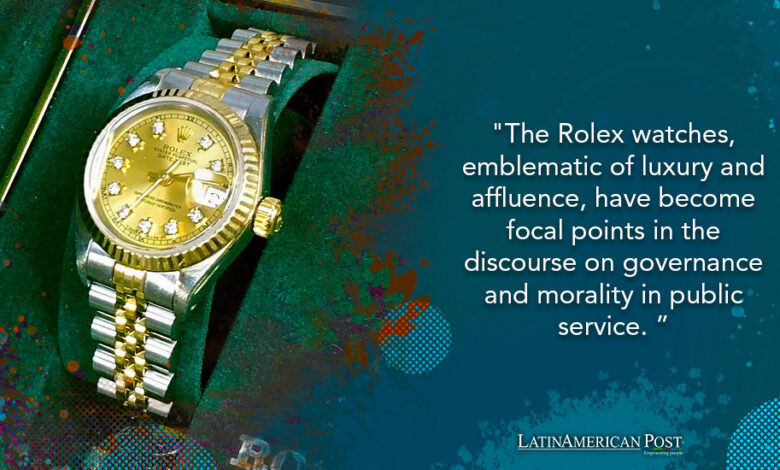
Peru’s President Dina Boluarte, embroiled in a scandal over a Rolex collection, symbolizes Latin America’s enduring battle with elite corruption, threatening the very fabric of democracy and economic integrity, as public trust wanes and calls for transparency grow louder.
In the unfolding narrative of Peru’s political drama, President Dina Boluarte’s Rolex collection has become a symbol of the pervasive corruption that has long plagued Latin American politics. The recent raids on Boluarte’s home and office, part of an investigation into allegations of illicit enrichment and failure to declare ownership of luxury items, have thrust the issue of political integrity into the spotlight.
Boluarte’s assertion of her innocence and commitment to governance transparency starkly contrasts with the image of law enforcement officials conducting searches for high-value assets like luxury watches. This dichotomy between claimed innocence and perceived opulence encapsulates a broader regional dilemma in which the lifestyles of the political elite often seem at odds with the socioeconomic realities of their constituents.
The incident has reignited discussions about the nature of corruption in Latin America, where the accumulation of unexplained wealth by public officials is not an uncommon narrative. The Rolex watches, emblematic of luxury and affluence, have become focal points in the discourse on governance and morality in public service. This controversy is not isolated to Peru but echoes a pattern of scandalous extravagance and corruption that has tainted the political landscapes of countries across Latin America.
Echoes of Scandal Across the Region
In Brazil, the Lava Jato (Car Wash) investigation unveiled a sprawling network of corruption, implicating officials at the highest levels of government and business. Similarly, in Argentina, numerous cases have surfaced over the years involving illicit enrichment and embezzlement, underscoring the systemic nature of corruption.
Peru’s history with corruption probes into its leaders, from Alberto Fujimori to Pedro Pablo Kuczynski, paints a grim picture of recurring malfeasance. The raids on Boluarte’s residence, therefore, are part of a continuum, highlighting the chronic challenge of rooting out corruption in a region with deep historical roots.
Beyond its material value, the Rolex collection represents a broader issue of transparency and ethical governance. Boluarte’s insistence on her clean financial history and the portrayal of the raids as “disproportionate” and “abusive” have sparked a debate on the balance between respecting legal processes and protecting individual rights, including the presumption of innocence.
Erosion of Public Trust
Critics argue that such displays of wealth, particularly when unaccounted for, erode public trust and widen the gap between the governing elites and the populace, who often grapple with poverty and inequality. They contend that actual democratic governance requires not only adherence to legal procedures but also an alignment of public officials’ lifestyles with the ethical standards expected by the public.
The unfolding saga in Peru serves as a case study for the region, demonstrating the complexities of combating corruption, the need for stringent asset declaration laws, and the importance of public accountability. It also underscores the role of the judiciary and investigative bodies in maintaining checks and balances, ensuring that those in power are not beyond scrutiny.
Moreover, the public reaction to the scandal, ranging from outrage to skepticism about the political motives behind the investigation, reflects a broader disillusionment with the political class and a growing demand for greater transparency and ethical conduct.
Also read: A New Deer Species Discovered in Peru’s Forests
The controversy surrounding President Boluarte’s Rolex watches transcends national borders, resonating with regional narratives of corruption and elite decadence. It highlights the urgent need for comprehensive reforms to strengthen anti-corruption frameworks, enhance public accountability, and rebuild trust in political institutions across Latin America. As the continent grapples with these enduring challenges, the commitment to upholding the principles of transparency, integrity, and justice remains critical for the future of democratic governance in the region.

